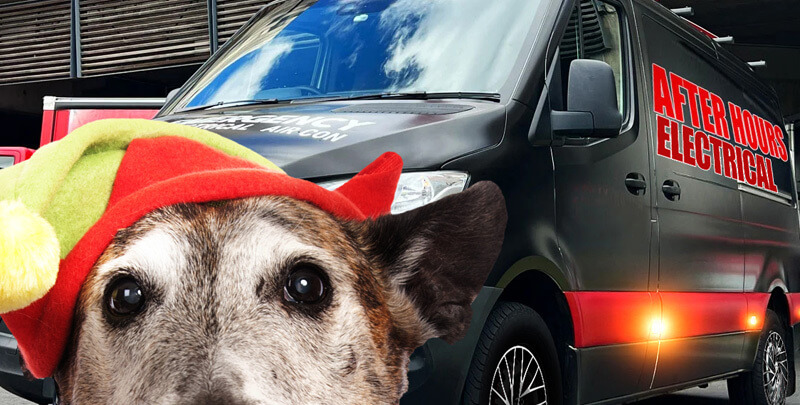Is It Dangerous If a Circuit Breaker Keeps Tripping?

Circuit breakers are essential components of residential electrical systems, designed to protect homes from electrical hazards. These devices are responsible for shutting off the electrical flow when a fault, such as an overload or short circuit, occurs. While it’s common for circuit breakers to trip occasionally, frequent tripping can be a cause for concern.
This article aims to answer the question “Is it dangerous if a circuit breaker keeps tripping?” We’ll explore the potential risks associated with this issue and provide guidance on what steps to take to ensure your home remains safe.
Understanding Circuit Breakers
So what does a circuit breaker actually do? Understanding its primary role and function is key to recognising why frequent tripping can indicate underlying issues that need addressing.
A circuit breaker is a crucial safety device in your home’s electrical system. Located within the main electrical panel, its primary function is to cut the flow of electricity when it detects any anomalies in the electrical current. When the current exceeds the breaker’s rating, it triggers a switch to cut off the power supply. By automatically shutting off the electrical circuit, you protect your home from risks like overheating, electrical fires and equipment damage.
Common Causes of Circuit Breaker Trips
A tripped breaker can occur for a variety of reasons. Here are just some ways that a circuit breaker tripping might happen.
Electrical Circuit Overload
One of the most common causes of a tripped circuit breaker is an electrical overload. This occurs when the demand on electrical circuits exceeds its capacity. In a residential setting, an overloaded circuit can happen when households simultaneously use too many devices or high-wattage appliances, such as air conditioners, ovens, and microwaves, on the same circuit.
For example, if you have multiple electrical appliances running at the same time, like a toaster and a microwave, along with the refrigerator, the circuit can become overloaded. The circuit breaker trips to prevent overheating and potential fire hazards, protecting your home from damage.
Short Circuits
A short circuit is another common reason why a circuit breaker might trip. This happens when a hot wire comes into direct contact with a neutral wire, creating a low resistance path for the electrical current. This results in a surge of electricity that the circuit cannot handle, causing the breaker to trip.
Short circuits can be caused by various factors, including:
- faulty wiring
- damaged insulation, or
- defective appliances
For instance, a damaged power cord on an appliance can lead to a short circuit when plugged in. Identifying and fixing the source of a short circuit is crucial to prevent further issues.
Ground Faults
Ground faults occur when a hot wire comes into contact with a grounded surface, such as a metal outlet box or a grounded appliance. This can cause the electrical current to bypass the intended path and flow directly to the ground, leading to a circuit breaker trip.
A ground fault is particularly dangerous because it can potentially lead to electrical shock. Common causes include damaged wiring or improperly installed electrical devices.
To protect against these risks, ground fault circuit interrupters (GFCIs) should be used. These devices detect ground faults and quickly shut off power to prevent electrical shock. It’s important to have a professional inspect and repair any ground faults to ensure home safety.
Faulty Appliances
Sometimes, the cause of a tripping circuit breaker can be traced back to a faulty appliance. Appliances with internal electrical issues can draw more current than usual or create short circuits, leading to frequent trips.
For example, an old refrigerator or a malfunctioning washing machine can cause the circuit breaker to trip repeatedly. In such cases, it’s essential to repair or replace the faulty appliance to prevent further electrical problems.
Wiring Issues
Wiring issues within the home can also lead to tripping circuit breakers. Poorly installed or degraded wiring can cause short circuits or electrical overloads, triggering the breaker. Common wiring problems include:
- loose electrical connections
- exposed wires
- aged wiring that no longer meets safety standards
Having an electrician inspect the home’s wiring can help identify and resolve these issues, ensuring that the electrical system operates safely and efficiently. Regular maintenance and inspections are key to preventing wiring-related problems.
Understanding these common causes can help homeowners recognise potential issues early and take appropriate action to maintain a safe electrical system.

Potential Dangers of Ignoring Tripping Circuit Breakers
So, what might you risk if you delay or ignore a tripped circuit breaker? Here are some potential hazards:
Fire Hazard
One of the most serious dangers of ignoring a tripping circuit breaker is the risk of fire. Frequent tripping often indicates underlying electrical issues, such as overloaded circuits or faulty wiring. If left unresolved, these issues can cause overheating and sparks, potentially leading to an electrical fire. According to fire safety authorities, electrical faults are a leading cause of house fires in Australia, making it crucial to address any signs of trouble promptly.
Electrical Shock Risk
Another significant danger is the increased risk of electrical shock. When a circuit breaker trips, it is a warning sign that something is wrong with the electrical system. Ignoring this warning can result in continued use of an unsafe circuit, heightening the risk of electrical shock. This is particularly concerning in homes with young children or pets, where accidental contact with faulty wiring or exposed electrical components can occur.
Increased Energy Costs
Electrical problems that cause circuit breakers to trip can also lead to increased energy consumption. Faulty wiring or appliances that draw excessive current can result in higher electricity bills. By addressing the root causes of a circuit breaker tripping, homeowners can ensure their electrical system runs efficiently, potentially saving money on energy costs.
By understanding and addressing the dangers associated with tripping circuit breakers, homeowners can take proactive steps to ensure the safety and efficiency of their electrical systems.
What to Do If Your Circuit Breaker Keeps Tripping
If your circuit breaker keeps tripping, it’s important to take immediate action to ensure safety:
- Unplug all appliances on the affected circuit. This helps to determine if the problem is with a specific appliance or the circuit itself.
- Once all devices are unplugged, reset the breaker by flipping it to the off position and then back to on.
- If the breaker trips again after resetting, avoid repeated attempts to reset it. This indicates a more serious electrical issue that requires professional attention from a qualified electrician.
- Contact a licensed electrician to inspect the electrical circuit and diagnose the problem. They have the expertise to identify and fix issues such as overloaded circuits, short circuits, or faulty wiring.
Professional intervention ensures that the electrical system is repaired safely and effectively, preventing future occurrences.
Never Ignore a Tripping Circuit Breaker!
A circuit breaker that keeps tripping should never be ignored. It is a clear sign of potential electrical issues that could lead to serious dangers such as fires or electrical shocks. Understanding the common causes and risks associated with tripping circuit breakers is essential for maintaining a safe home.
Homeowners should take immediate action by unplugging appliances and seeking professional help to diagnose and repair the problem. Ensuring your electrical system is in good working order not only protects your property but also ensures the safety and well-being of your household.
Please note: Thanks for reading our blog “Is It Dangerous If A Circuit Breaker Keeps Tripping?”. This information is provided for advice purposes only. Regulations differ from state to state, so please consult your local authorities or an industry professional before proceeding with any work. See After Hours Electrical’s Terms & Conditions here.
